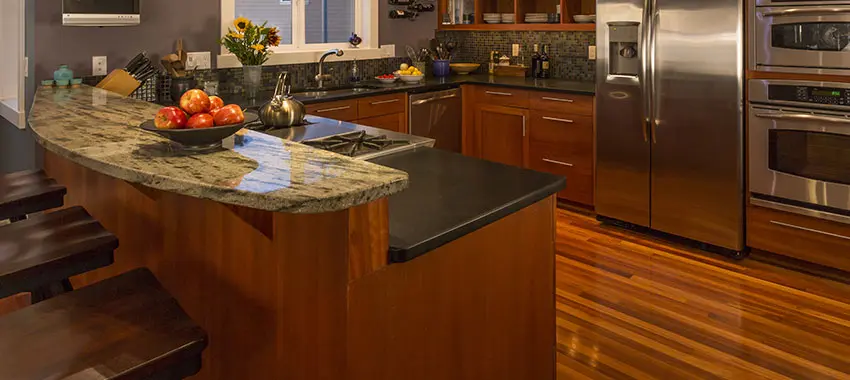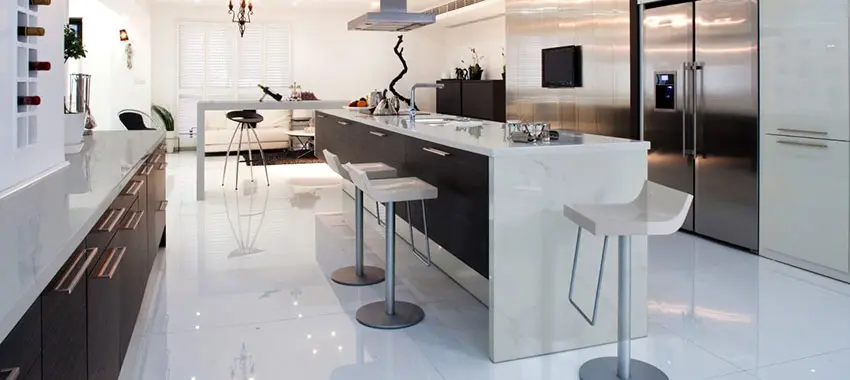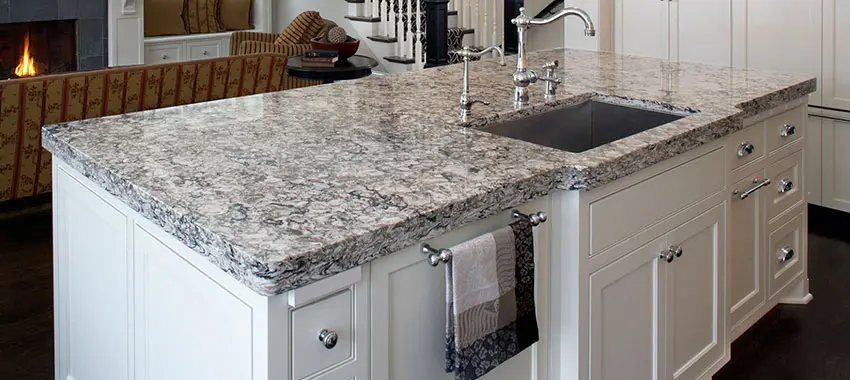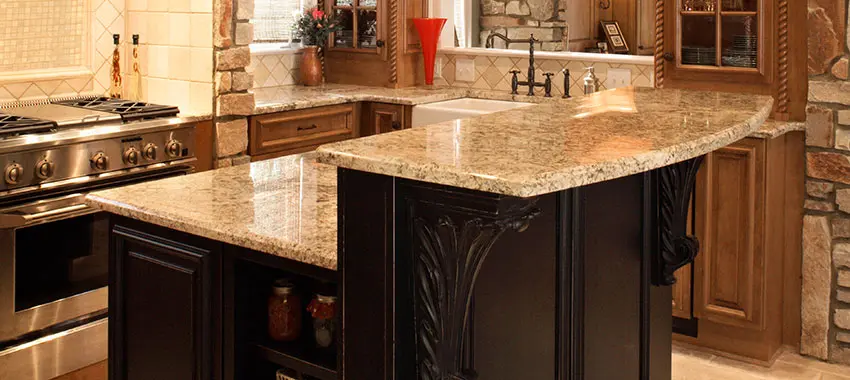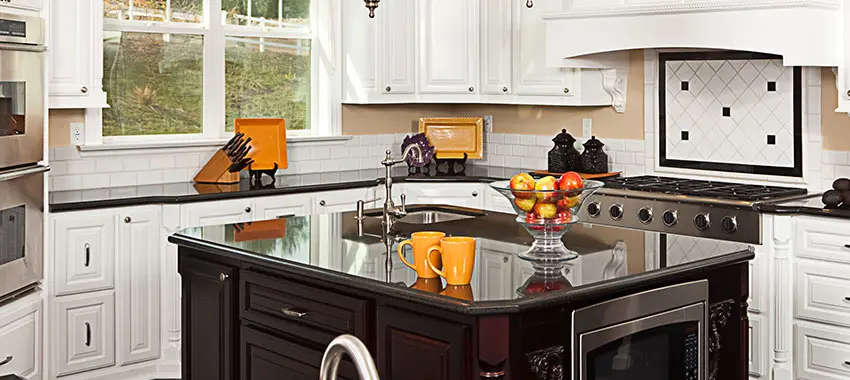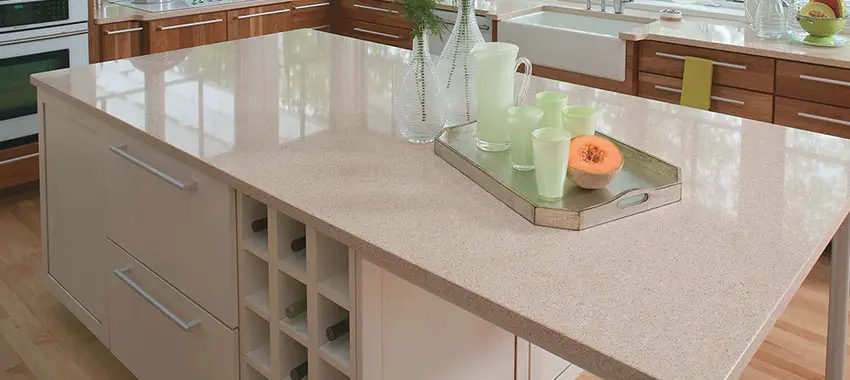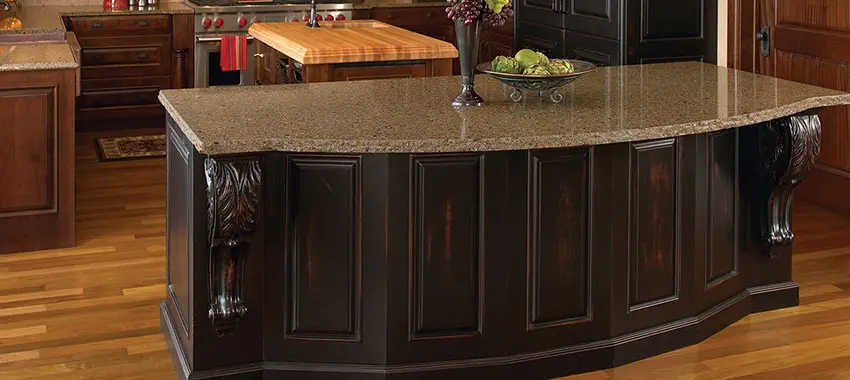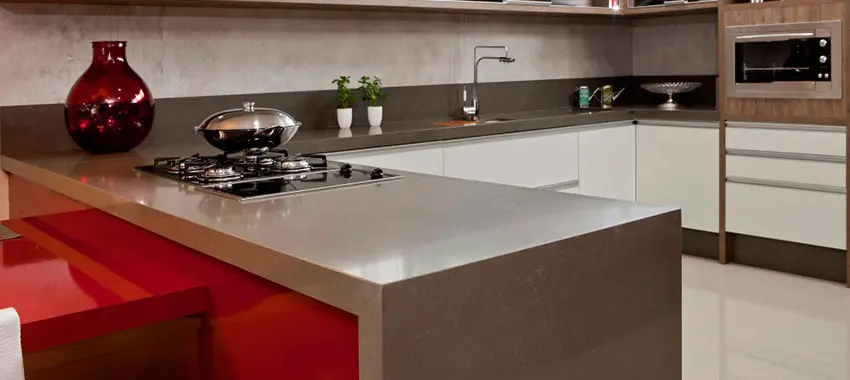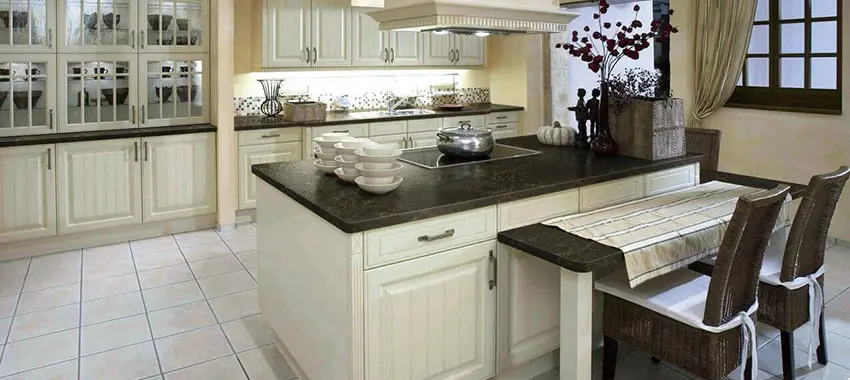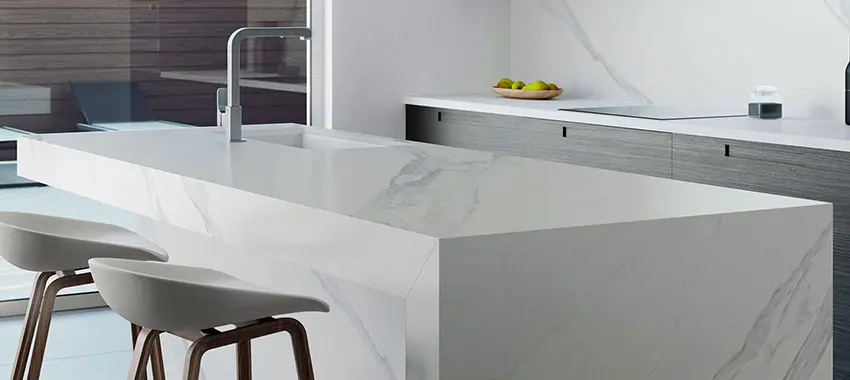Oct
What Is The Cheapest Color Of Granite?
If you have been shopping for granite countertops, you must have noticed that the color of the countertop has a significant impact on the price, where the uniform, rare colors tend to go at a higher price.
If you are operating on a budget, you must be wondering, what is the cheapest color of granite, right? The cheapest countertops are those with speckled and busy designs. The most common ones being:
Azul Platino
Azul Platino is quarried near Vigo, Spain, and it has been around for hundreds of years. This granite features an off-white background with small bluish-gray specks, and in some cases, it will have black spots scattered throughout the slab.
It’s also common to have the countertops with white or black veining. On closer examination, the countertops will have green, brown, or even pink flecks. The countertops will also have amethyst quartz crystals that provide brilliant violet flecks throughout the slab.
Azul Platino slab is usually large, making it an excellent choice for kitchen islands and other large-sized countertop needs.
New Caledonia
New Caledonia is quarried in Espirito Santo, Brazil, and the granite features a uniform appearance meaning that it’s common to find two almost identical slabs, which is not common with most other natural granite slabs.
The granite slab features a white background with gray and brown speckles that run uniformly throughout the slab.
When you look at the slab from a distance, it appears to be comprised of shades of gray ranging from light gray to deep charcoal with black and white patches throughout the slab, but on closer examination, you will notice hues of brown and sparkling crystals running throughout.
The beauty with New Caledonia is that it’s highly versatile and looks great in both contemporary and traditional kitchens and bathrooms.
You can pair it with dark wood-stained cabinetry or with light cabinetry for the charcoal flecking to stand out.
Dallas white
Dallas white granite is quarried in Aguia Branca, Brazil, and the granite has low water absorption and low porosity, making it an excellent choice for kitchens and bathrooms.
The slab has a white background with dark crystals scattered throughout, and in some cases, it might have slight veining.
The countertop’s uniform flecking works perfectly in traditional kitchens where the granite’s brown, golden cream veins and lavender flecks blend perfectly, giving your kitchen a beautiful look.
For the perfect look, pair the countertops with white or dark wood cabinetry such as walnut.
The unique thing about Dallas White granite is that, unlike other granites in the market, it doesn’t need face resin due to the tight grain structure found in the stone.
The lack of resin means that you can place hot pots on the countertops without worrying about damaging the granite surface.
Uba tuba granite
Also known as Ubatuba, Uba tuba is mined near Ubatuba, Sao Paolo, Brazil. The granite features a dark green background with consistent green, gold, and brown flecks scattered across the slab.
It also has a tight granite pattern with a few veins running throughout the stone. The veins present are usually small and gold, white, or turquoise.
The minerals in the granite vary in size from as little as an apple seed to as large as half a dollar, which significantly adds visual interest to the stone.
If you have a traditional kitchen, pair Ubatuba with dark cabinetry but if looking to create a contemporary space, pair the countertops with white cabinetry.
If you aren’t sure about the look you want to create, you don’t have to worry, as the various colors found in the Uba Tuba slab create a sophisticated yet simple look that works for every home.
Don’t buy poor-quality granite.
While you are looking for the cheapest color, you shouldn’t buy the cheapest quality countertop as it’s a matter of time before the countertop starts breaking apart and they end up being too expensive in the long run. Instead of cutting the cost on the quality of the slab, stay away from fancy edges, and instead, opt for a standard sink and choose granite remnants for the small areas instead of buying an entire slab.
To avoid getting ripped off, walk with experienced granite countertop installers Rockville to these stores.


